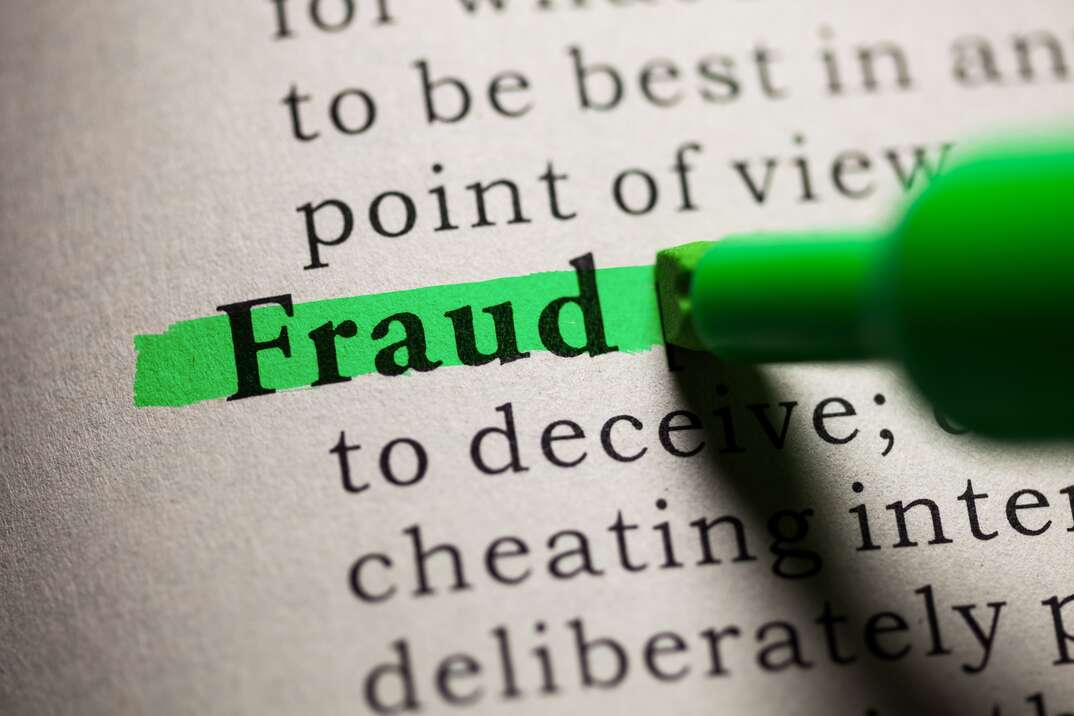- AppliancesElectriciansHVACLandscapingLocksmithPest ControlPlumbingRenovationRoofingT V RepairAll Home Improvement
- Car AccidentClass ActionCorporate LawCriminal DefenseDivorce LawEmployment LawFamily LawFinancial LawLegal AidMedical Injury LawyersMedical MalpracticeReal Estate LawWater Fire RestorationAll Legal
- InvestmentRetirementAll Finance
- Animal InsuranceAutoGeneral InsuranceHealth PolicyHome RentersAll Insurance
- DentalHealth SpecialistsAll Medical
- Animal CareVeterinaryAll Pets
- Auto GlassTowingAll Automotive
What Is Fraud?

When you hear the word "crime," you may think about assault, battery and other violent offenses. The truth is that property crimes are nearly six times more common than violent crimes, making it critical that you understand how to protect yourself from fraud, theft and burglary.
Before you make any financial decisions, learn more about fraud and how it can affect you.
According to the Association of Certified Fraud Examiners, fraud is any type of deception used for personal gain. This fraud definition also includes deception used to deprive another person of their rights. Although fraud sounds similar to theft, there are some subtle differences.
Theft involves taking someone's property without permission. It's different from fraud because it doesn't involve deception. A thief can simply take money out of someone's wallet or steal an expensive object while visiting another person's home. Fraud requires some type of deception to realize a gain.
Is Fraud a Crime?
Fraud is both a crime and a civil offense. If the government prosecutes someone for fraud, the district attorney must be able to prove the following:
- The accused party misrepresented a material fact with the purpose of deceiving the victim.
- The victim relied on the misrepresentation when making a decision.
- The victim suffered some type of loss due to the misrepresentation.
In law, a material fact is a fact that's relevant to an important decision. For example, the value of a home is a material fact to buyers and sellers. Penalties for a criminal fraud conviction may include fines, restitution and incarceration. In a civil lawsuit, the plaintiff typically wants the defendant to pay back any funds they obtained via deception.
More Related Articles:
- When Do You Need a Lawyer? Determine If You Need to Hire an Attorney
- What Is a Class-Action Lawsuit?
- What Is a Misdemeanor?
- What to Do After a Car Accident
- What Is Power of Attorney?
Fraud comes in many forms, but mail fraud, identity theft, bankruptcy fraud and wire fraud are some of the most common. Mail fraud is when someone uses the U.S. Postal Service to commit a crime. For example, if a business owner sends a fake invoice to a customer, they're committing mail fraud.
Identity theft occurs when someone uses your personal information without your permission. For example, someone may steal your Social Security number and use it to open a credit card in your name. If they don't pay the credit card bill, you could end up with negative marks on your credit report, making it difficult to qualify for a mortgage or an auto loan.
Bankruptcy fraud involves falsifying information in a bankruptcy case. This type of fraud takes several forms. One of the most common is hiding assets from the bankruptcy trustee. Some people do this to avoid having to give up automobiles, jewelry and other property. A filer may also submit false or incomplete forms, leaving the judge with an inaccurate impression of their financial situation. In some cases, a person commits bankruptcy fraud by filing multiple times in different jurisdictions.
Wire fraud is the use of the internet or some other telecommunications service to commit fraud. To convict someone of this type of fraud, the prosecutor must prove the following:
- The accused intentionally participated in a scheme to defraud someone.
- The accused intended to defraud the victim.
- It was "reasonably foreseeable" that interstate wire communications would be used.
- The accused used interstate wire communications.
Bernie Madoff was charged with wire fraud after his Ponzi scheme came to light, as he tried to conceal the scheme by making a series of wire transfers. The U.S. Attorney also charged Madoff with mail fraud, securities fraud and investment adviser fraud.
Elocal Editorial Content is for educational and entertainment purposes only. The information provided on this site is not legal advice, and no attorney-client or confidential relationship is formed by use of the Editorial Content. We are not a law firm or a substitute for an attorney or law firm. We cannot provide advice, explanation, opinion, or recommendation about possible legal rights, remedies, defenses, options or strategies. The opinions, beliefs and viewpoints expressed by the eLocal Editorial Team and other third-party content providers do not necessarily reflect the opinions, beliefs and viewpoints of eLocal or its affiliate companies. Use of the Blog is subject to the
Website Terms and Conditions.The eLocal Editorial Team operates independently of eLocal USA's marketing and sales decisions.



